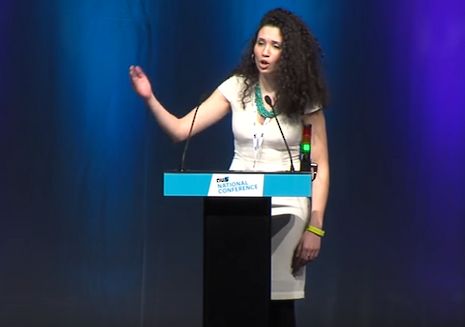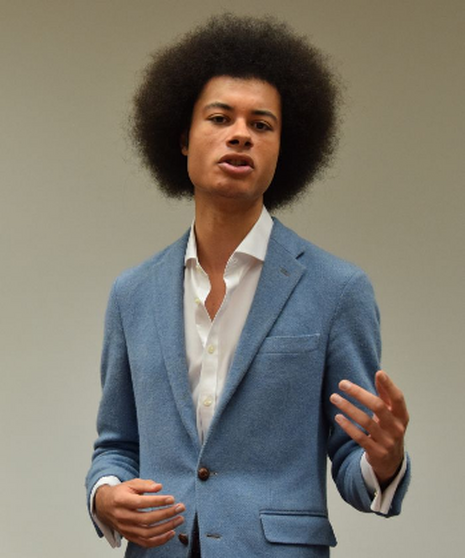Cambridge responds to NUS racism review
While some students expressed solidarity with black students, others castigated the omission of anti-Semitism from the review

An independent review into institutional racism within the National Union of Students (NUS) has met with a mixed reception in Cambridge, renewing concerns over anti-Semitism in student politics and institutional racism within the University itself in the wake of the referendum on NUS membership.
The review found that the NUS had “failed to seriously support black staff, officers and volunteers”. Black staff, it reported, lack confidence in NUS policy and procedures to deal with racism, while white staff struggle to define institutionalised racism.
It also raised concerns about the employment practices of the organisation, which it claims has favoured white men and resulted in a relatively homogeneous executive. Despite recent controversy over the issue, the review did not address anti-Semitism in depth.

Some within Cambridge welcomed the review’s conclusions. Josh Jackson, one of four recently elected Cambridge NUS delegates, said: “I stand with the black and minority officers and staff of NUS when they say they have suffered racism within the NUS and the wider student movement.”
Jackson, who will attend NUS’ annual conference in April, echoed the researchers’ concerns over the nature of political debate within NUS, describing “a culture that is often toxic, factional and creates a deep rooted distrust that allows racial tensions to reach boiling point”.
Commenting on the review’s findings, Nadine Batchelor-Hunt, President of the CUSU BME Campaign, proposed “further investigations into the issues the NUS has with racism” including the lack of diversity in the NUS executive and why “as little as 7 per cent of students of colour have confidence in its procedures aimed at addressing unconscious bias”.
Batchelor-Hunt pointed to similar institutional problems at Cambridge, highlighting that “in 2015 21.9 per cent of white undergraduates at the University of Cambridge achieved a First, whereas the figure drops to 9.9 per cent for Black or Black British African students, and 8.1 per cent for Mixed-White and Black Caribbean”. The BME Campaign President hoped that “in the near future there will be sabbatical role for a representative for students of colour”.
Malia Bouattia, NUS President, instigated the review during her previous role as NUS Black Students’ officer, after alleging that the NUS was institutionally racist. Yet Bouattia herself has been dogged by allegations of racism. Controversy followed her election as President in April, as she was accused of anti-Semitism due to comments she had made in the past, notably describing Birmingham University as “something of a Zionist outpost”. Bouattia has refused to retract the comments, arguing that they have been misinterpreted.
Following Bouattia’s election, students in a number of universities, including Cambridge, called referenda on whether to disaffiliate from the NUS. The Cambridge campaign for disaffiliation made the organisation’s perceived anti-Semitism a central part of its platform. Responding to this sentiment, Richard Brooks, NUS Vice-President, told Cambridge students during the campaign that the NUS would address Jewish students’ concerns in a number of ways, including an anti-racism investigation that would explicitly include Jewish students.
Yet in spite of Brooks’ claim, this review explicitly did not focus on anti-Semitism. The Runnymede trust, the racial equality think tank which conducted the review, wrote: “We should be clear in stating… the review did not undertake a detailed and comprehensive examination of either [anti-Semitism or Islamophobia]”.
Adam Crafton, a recent Cambridge graduate who campaigned for disaffiliation from NUS, acknowledged that the review was meant to focus on black members of NUS, but said instead he took issue with “the way that the remain campaign tried to use this review to be something it isn’t”.
The review’s lack of focus on anti-Semitism was criticised by the Union of Jewish Students (UJS) who expressed their disappointment in the “lack of any in-depth examination of the challenges facing Jewish students.” Alex Szlezinger, President of the Cambridge University Jewish Society, stood by the UJS and said “that further investigation into anti-Semitism would certainly be prudent and effective.”
Batchelor-Hunt also supported the UJS’s statement and called for separate investigation into allegations of anti-Semitism within the NUS and said that the BME Campaign “unequivocally support Jewish students in tackling anti-Semitism and racism at NUS-level, and at the University of Cambridge, in whatever ways we can.”
“The fish is rotting from the head”
However, Crafton was sceptical of the idea of a second investigation.
“There is little point in having an investigation when the President herself has been accused of anti-Semitism… the fish is rotting from the head,” he said.
This view was shared by another member of the NUS referendum Yes Campaign, Jack May, who told Varsity: “I highly doubt a truly authoritative and independent investigation can take place [with Bouattia as President].”
Looking forward, May expressed doubt over whether the NUS’ ability to reform itself: “I strongly hope it will change, but I have no confidence in its ability to change.”
Josh Jackson disagrees: “We can and will do better, and as a delegate I will vote on any motion to make the NUS a more perfect union.”
Amatey Doku, CUSU President, did not respond to Varsity's request for comment. Neither did Richard Brooks nor Cambridge's other three NUS delegates: Jonty Leibowitz, Éireann Attridge and Roberta Huldisch.
 News / Colleges charge different rents for the same Castle Street accommodation2 March 2026
News / Colleges charge different rents for the same Castle Street accommodation2 March 2026 News / News in Brief: waterworks, wine woes, and workplace wins 1 March 2026
News / News in Brief: waterworks, wine woes, and workplace wins 1 March 2026 News / Climate activists protest for ‘ethical careers policy’1 March 2026
News / Climate activists protest for ‘ethical careers policy’1 March 2026 News / Angela Merkel among Cambridge honorary degree nominees27 February 2026
News / Angela Merkel among Cambridge honorary degree nominees27 February 2026 News / Private school teacher who lied about Cambridge degree barred from teaching27 February 2026
News / Private school teacher who lied about Cambridge degree barred from teaching27 February 2026








